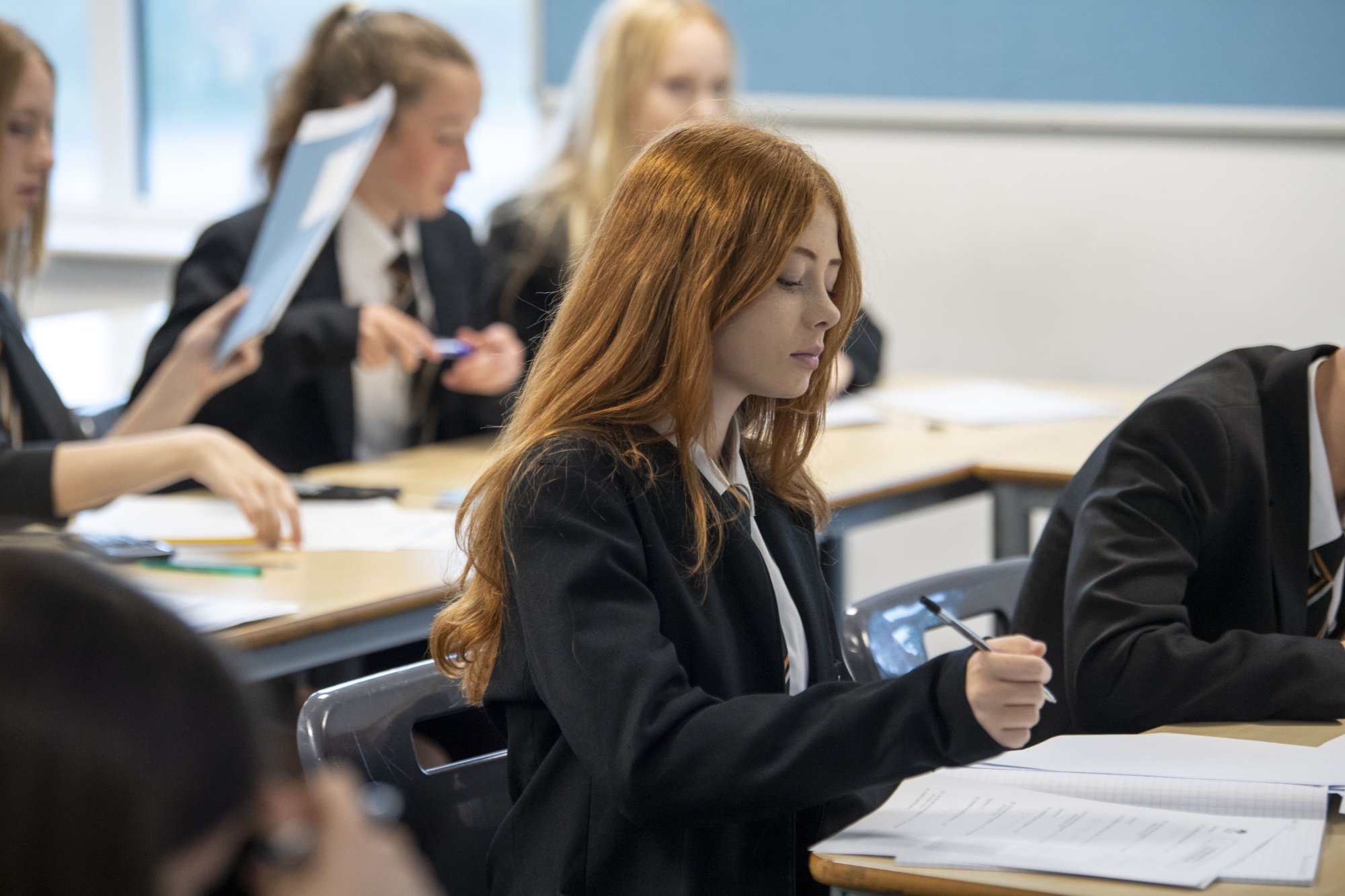Religious Education

Religious Education follows the Agreed Syllabus for Religious Education – “Search for Meaning”. The aim is to support students’ personal search for meaning as they explore what it means to be human. Students will learn about the beliefs, values and traditions of the major world faiths. This will enable students to understand how RE has shaped the world in which we live and continue to have an impact on people throughout the modern world.
Year 7
The overarching question: “Where do we belong?” provides an opportunity for students to build upon their studies at primary school as to the role played by religious and non-religious beliefs in contributing to a person’s sense of identity. Students study where the world’s major religions can be found. How the beliefs and life of Jesus show to believers what it means to belong to the Christian faith? How do groups and the places of worship provide that sense of belonging? Students also study how Islamic beliefs and teachings provide believers with a sense of community. Celebrations and festivals are also investigated to show how this creates a sense of community.
Year 8
The overarching question: “Where can we find guidance?” leads students to investigate the teachings from the different holy texts and key individuals within religions. For example, students study the Christian moral code and teachings of Jesus. They also study the key beliefs and teachings from the world faiths of Islam, Judaism and Sikhism.
Year 9
The overarching question: “What really matters?” encourages students to think about religious and ethical questions and dilemmas. Students are to think critically about a wide range of topics including: the sanctity of life both from humans and animals, ethics in medicine and attitudes towards poverty and where was God during natural disasters. Students will also consider the philosophical arguments for the existence of God, do miracles really happen and has religion passed its sell by date?
Year 10 and 11
At KS4 students are following the GCSE specification from Eduqas. Students will examine the compulsory four key themes over two years. Students will develop an understanding of religious and non-religious beliefs. They will engage with questions about belief, values, purpose and influence on human life. Students will be challenged to reflect upon their own beliefs and attitudes in the light of their learning and the units covered will help to prepare them for life in a pluralist society and global community.
The Modern Family: This theme requires learners to consider characteristics of relationships, marriage and family life. Through a study of beliefs and teachings, questions relating to issues of relationships in the twenty-first century will be considered, including same sex relationships and gender roles. Learners are expected to make relevant references to scripture and other sources of authority
Good and evil: This theme requires learners to consider philosophical questions concerning the origins and nature of good and evil. Through a study of teachings and beliefs, questions relating to the causes of crime and attitudes towards the aims of punishment and treatment of criminals will be considered. Learners are expected to make relevant references to scripture and other sources of authority.
Human Rights: This theme considers contemporary issues of human rights and social justice and their relationship with religion and belief. Learners will be expected to consider specific issues of wealth and poverty, racial prejudice and discrimination.
Life and death: This theme requires learners to consider religious and non-religious beliefs about the nature of life and death and the origins and value of the universe and human life. Learners are expected to make relevant references to scripture and other sources of authority as well as the beliefs of Humanists and Atheists.
Learning Journeys
For further information about our Religious Education curriculum, please contact Mr W Davidson, Head of Humanities and MFL, by emailing wdavidson@westcraven.co.uk or phoning the main office to arrange a call back.
